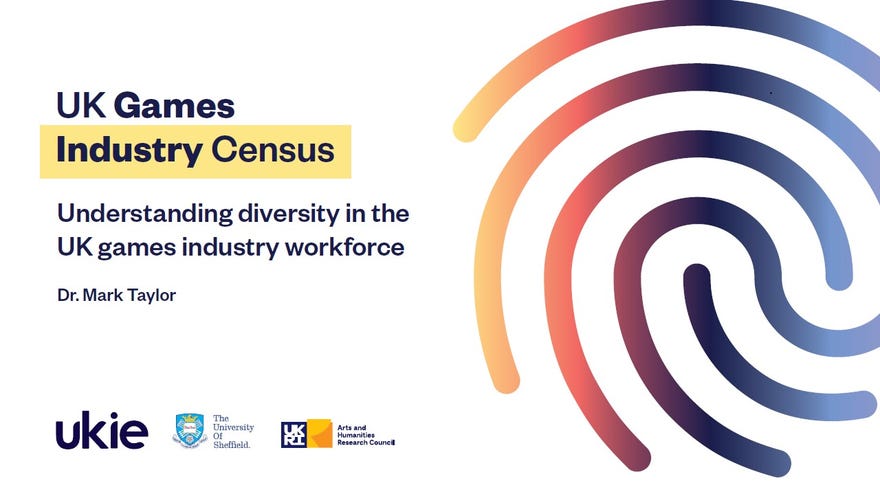Ukie report shows the UK games industry has an overwhelming lack of diversity
“Diversity isn't a nicety; it's a necessity if the industry is going to grow"
The first ever detailed report on diversity in the UK games industry has been published, showing some pretty eye-opening statistics about the industry's inclusivity, as well as the mental health of people working in games.
Conducted by Ukie (the UK Interactive Entertainment trade body), the census revealed that female representation in the games industry "is significantly under the national average" - with 70% of people working in games being male, just 28% female, and 2% non-binary. On top of that, 31% of UK game workers that answered the survey said they live with anxiety and depression, nearly doubling the national average of 17%.
The stats also show that people from BAME (Black and Minority Ethnic) backgrounds make up only 10% of the industry, which is below the average of the BAME working population. While that's still higher than other creative industries, they're still "noticeably less represented in senior positions" too.
LGBTQ+ people are better represented in the UK games industry than in other sectors, with 21% of the survey's respondents identifying as LGBTQ+. This is "a significantly high proportion" according to Ukie, "with other data sources indicating that heterosexual people make up between 93-97% of the national population". Trans and non-binary workers make up more of the games industry than the national average too, with trans folks making up 3% (above the estimated 1% national average) of the industry workforce, and non-binary folks making up 2% (above the estimated 0.4%).
Unfortunately, the census doesn't go very deep on stats for issues like crunch, but it did find that 3.5% of respondents said they worked 51 hours or more each week, while three quarters of reported working "a standard full-time working week of between 33-40 hours". Hopefully in future surveys we'll see this explored more thoroughly.
These statistics come from a survey of 3208 people, which Ukie estimates to be "around 20% of the overall workforce". They say responses from London are over-represented, and places like Wales and Scotland are under-represented, so it's worth bearing in mind that this isn't a complete and total representation of the UK games industry. Though, Ukie has said they plan to conduct more surveys like this in the future to get an idea of the how the industry's diversity is progressing.
Despite being better than other sectors in the UK, our games industry still has a lot to work on, and Ukie have announced the #RaisetheGame pledge to "to improve equality, diversity and inclusivity across the sector". They're inviting UK game companies to sign up and commit to three three goals they've laid out:
Creating a diverse workforce by recruiting as fairly and as widely as possible Shaping inclusive and welcoming places to work, by educating and inspiring people to take more personal responsibility for fostering and promoting diversity and inclusion Reflecting greater diversity within games at every level from game design and development through to marketing and community engagement
"Diversity isn't a nicety; it's a necessity if the industry is going to grow, thrive and truly reflect the tens of millions of people that play games every day in this country," said Ukie CEO, Jo Twist.
“By taking such a frank and honest look at our industry through the census and committing to the #RaiseTheGame pledge, which we encourage all businesses to sign up to, we can lay the foundations for the creation of a truly diverse and inclusive sector for all.”
If you're interested in seeing all the statistics gathered from the census, you can take a look at the report over on UKIE's website.

